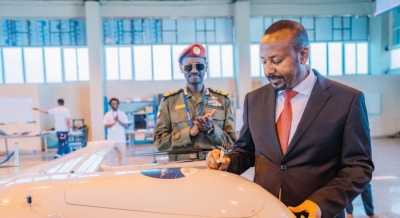As ISIS attempts to take advantage of the current instability in Syria following the fall of Bashar al-Assad's regime, two UN officials have warned about the group's growing capacity to plan destabilization operations across the African continent.
The instability caused by the overthrow of Assad’s dictatorship on December 8 creates the risk of sophisticated weapons stockpiles falling into ISIS hands, warned Vladimir Voronkov, head of the UN Office of Counter-Terrorism (UNOCT), which oversees the coherence of UN counterterrorism activities.
Speaking at a Security Council meeting on ISIS, Voronkov highlighted that this instability also affects camps and detention centers in northeastern Syria, where more than 42,000 people, some allegedly linked to the group, remain detained.
Observing a significant slowdown in the repatriation of foreign nationals still stranded in these camps and facilities, the UNOCT chief urged Member States to redouble their efforts to facilitate their return.
Voronkov also reminded that ISIS maintains its stronghold in the Badia, the Syrian desert stretching from Homs to the Euphrates Valley, from where the terrorist group plans its external destabilization operations, particularly beyond the Middle East.
A Growing Threat in Africa
ISIS is exploiting ongoing conflicts and increasing instability in Africa to carry out operations on the continent, warned Natalia Gherman, head of the UN Counter-Terrorism Committee Executive Directorate (CTED), responsible for implementing Security Council resolutions on counterterrorism.
According to Gherman, ISIS, through its affiliated terrorist groups, now represents "the most significant threat to peace" on the African continent.
As an example, the CTED chief cited the Islamic State in West Africa, which exploits precarious conditions in the region to recruit children, commit abductions, and attack schools and hospitals.
In the Sahel and the Lake Chad Basin, she added, ISIS’s decentralized operations continue to proliferate, while regional cooperation is declining.
"Persistent Gaps"
In 2024, Gherman stated that CTED had conducted numerous visits, including to Côte d'Ivoire, Ghana, Malawi, Mauritania, and Tanzania, to assess the implementation of Security Council counterterrorism resolutions.
According to her, these visits and the Counter-Terrorism Committee’s analyses revealed "persistent gaps" in border security and national efforts to combat terrorism financing.
They also highlighted the need for greater regional collaboration to counter the transnational nature of ISIS activities.
"Prosecution, rehabilitation, and reintegration programs must also remain a cornerstone of these efforts," she added.
New Guiding Principles
The CTED chief also mentioned ongoing initiatives to strengthen rehabilitation in prisons and emphasize socio-economic reintegration services within communities, particularly for vulnerable adolescents.
She recalled that the Counter-Terrorism Committee had adopted, last month, non-binding guiding principles on preventing the use of new financial technologies for terrorist purposes, also known as the "Algeria Guiding Principles."
"These guiding principles emphasize the importance of a comprehensive, risk-based approach and provide practical guidance to Member States," Gherman stressed.
Source: UN News











